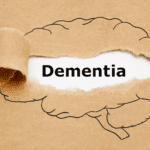Introduction:
Navigating the landscape of dementia care requires a foundational understanding of the unique communication hurdles faced by individuals living with this condition. Effective communication is not just about exchanging information; it’s about fostering an empathetic connection that acknowledges the individual’s experiences, challenges, and humanity. In this comprehensive guide, we delve into the essence of communication within dementia care, providing caregivers, family members, and healthcare professionals with insights, strategies, and tools to enhance their interactions with those affected by dementia. By elevating our communication approaches, we can significantly improve the quality of life for individuals with dementia, making every word count towards a more understanding and supportive care environment.
Understanding Dementia and Communication:
Dementia encompasses a range of neurological disorders that impair cognitive functions, such as memory, thinking, orientation, comprehension, calculation, learning capacity, language, and judgement. However, consciousness is not affected. The progression and outcome of dementia vary, but it predominantly affects older people. It’s not just the loss of memory or language skills but also the alteration in the way individuals perceive their surroundings and articulate their thoughts and needs. Recognizing these changes is crucial for adapting communication methods to meet the person where they are, rather than where we expect them to be.
Challenges in Communication:
Communicating with someone who has dementia can be complex and, at times, frustrating for both the individual and the caregiver. These challenges stem from the very nature of the disease, affecting language, thought processes, and the ability to recognize familiar people and environments. Here are some common communication hurdles:
- Language and Speech Difficulties: Difficulty in finding the right words or following a conversation can lead to frustration and withdrawal from social interactions.
- Cognitive Challenges: Problems with attention span, memory, and the ability to process information can make communication efforts more difficult.
- Behavioural and Emotional Changes: Dementia can lead to mood swings, agitation, and even aggression, complicating efforts to communicate effectively.
- Sensory Decline: Hearing and vision impairments can further hinder the ability to communicate, necessitating adjustments in how we convey messages.
Effective Communication Strategies:
Adapting communication techniques to meet the needs of those with dementia is essential for fostering understanding and connection. Here are several strategies that can aid in more effective communication:
- Patience is Key: Allow ample time for the person to respond, and resist the urge to interrupt or complete their sentences. Patience conveys respect and gives them space to express themselves at their own pace.
- Simplify Your Messages: Use simple words and short sentences. Avoid open-ended questions that can be overwhelming. Instead, offer choices or ask yes/no questions to simplify decisions.
- Non-Verbal Communication: Body language, facial expressions, and tone of voice often convey more meaning than words alone. A gentle tone, a smile, and direct eye contact can provide reassurance and convey empathy.
- Maintain a Positive Environment: Use positive language, focus on what can be done, and offer reassurances. Highlighting the positive can help maintain a supportive and uplifting atmosphere.
- Engage in Their Reality: Instead of correcting misunderstandings, try to enter the person’s reality. Acknowledge their feelings and perspectives to validate their experiences, which can reduce anxiety and confusion.
- Utilise Visual Aids and Reminders: Pictures, written notes, and other visual aids can help compensate for memory loss and facilitate better understanding of daily tasks and schedules.
- Repeat and Rephrase If Necessary: If the person doesn’t understand the message the first time, try rephrasing it. Sometimes, repetition with slight modifications can aid comprehension.
- Focus on Familiar Topics: Engaging in conversations about familiar subjects, such as past professions or hobbies, can stimulate memory and encourage participation.
The Role of Environment in Communication:
Creating an environment conducive to effective communication is as important as the communication strategies themselves. A supportive environment can significantly enhance comprehension and interaction for someone with dementia.
- Reduce Background Noise: A quiet setting minimises distractions, making it easier for the person with dementia to focus on the conversation.
- Ensure Good Lighting: Proper lighting can help individuals with dementia see facial expressions and non-verbal cues more clearly, aiding in understanding.
- Create a Comfortable Setting: Comfortable seating arrangements that facilitate face-to-face interaction can make communication more personal and engaging.
- Minimise Clutter: A clutter-free environment can reduce confusion and help individuals with dementia concentrate on the conversation at hand.
Technology and Communication Aids in Dementia Care:
The integration of technology into dementia care offers innovative ways to facilitate communication, enhance cognitive function, and improve the overall quality of life for individuals with dementia. Here are some advancements and tools that have shown promise:
- Communication Apps and Devices: Apps designed specifically for dementia can help individuals express their needs, recall names, and engage in simple conversations. These tools often use pictures and icons that users can tap to convey messages.
- Digital Reminders and Assistants: Smart devices and voice-activated assistants can provide reminders for medication, appointments, and daily activities, helping those with memory challenges stay on track.
- Interactive Games and Activities: Digital platforms offer games and activities tailored to individuals with cognitive impairments, promoting engagement and stimulating memory and language skills.
- Virtual Reality (VR) and Augmented Reality (AR): These technologies can create immersive experiences that stimulate cognitive functions and offer therapeutic benefits, such as reminiscence therapy, by recreating familiar environments or experiences from the past.
- Wearable Technology: Devices like smartwatches can monitor health metrics and provide alerts for wandering, a common issue in later stages of dementia, enhancing safety and peace of mind for caregivers.
Implementing Communication Strategies:
Incorporating effective communication strategies and leveraging technological aids requires a personalised approach, recognizing that each individual’s experience of dementia is unique. Continuous education and training for caregivers and healthcare professionals are vital to understanding and implementing these strategies effectively.
Conclusion:
Effective communication forms the cornerstone of compassionate and comprehensive dementia care. It transcends the basic need for understanding, touching upon the profound human need for connection, dignity, and respect. At Complete Homecare 24, we deeply understand the complexities involved in caring for individuals with dementia. Our approach is rooted in patience, empathy, and the innovative integration of strategies and technologies designed to enhance the quality of life for those living with dementia.
Our dedicated team at Complete Homecare 24 is committed to providing personalised in-home care tailored to the unique needs of each individual. We recognize that every person’s journey with dementia is different, which is why we offer bespoke care plans encompassing a wide range of needs, from palliative care to support for those with learning disabilities and brain diseases such as dementia.
If you or a loved one is in Northern Ireland and considering the benefits of in-home care, we invite you to reach out to us. Our compassionate team of in-home carers is ready to discuss how we can support you or your loved one with a care plan that respects individual needs and promotes the best possible quality of life.
Contact Us:
Interested in learning more about our services or joining our team of caring companions? We’re always looking for dedicated individuals to join our in-home caring team across Northern Ireland. For inquiries about our care services or to explore employment opportunities, please contact us:
- Head Office: 27A Annesborough Road, Lurgan, BT679JD
- Phone: 02838 562190
- Email: info@completehomecare24.com
At Complete Homecare 24, we put our patients first, considering what will work best for them in every aspect of our care. Let us help you find the best bespoke care plan to fit you or your loved one’s individual needs. Reach out today and take the first step towards compassionate, personalised in-home care with Complete Homecare 24.





